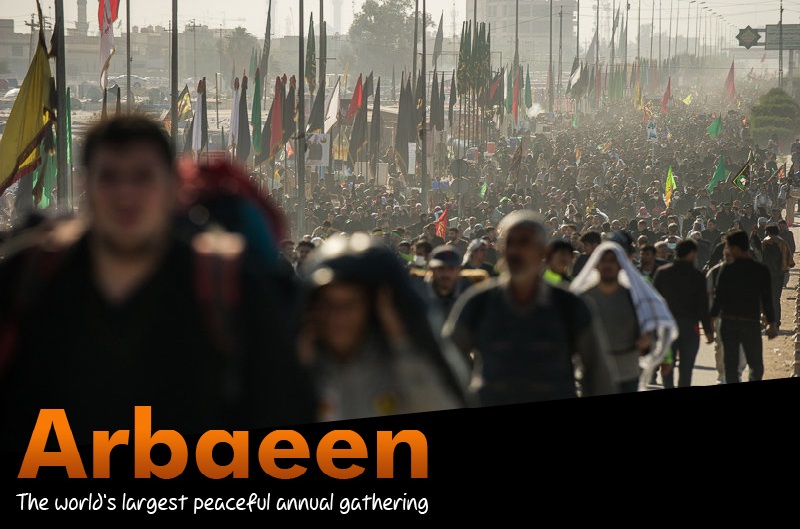Arbaeen of Imam Hussein (PBUH) is the 20th day of Safar in the Hijri Lunar calendar and the anniversary of the 40th day after the Battle of Karbala when Imam Hussein (PBUH) and his companions were martyred on the Day of Ashura, (Muharram 10, 61 AH/October 10, 680).
It is reported that the Captives of the Battle of Karbala came to visit Imam Hussein in Karbala on Safar 20, 61/November 19, 680) on their return from Syria to Medina.
In a hadith from Imam al-Hasan al-'Askari (PBUH), ziyarah of Arba'in is considered among the signs of the faithful.
This day is a national holiday in Iraq. Muslims mourns on the day of Arbaeen and mourning groups rally on the streets. In recent years, the great march of pilgrims walk toward the holy city of Karbala on the day of Arbaeen has become one of the most important mourning ceremonies around the world and it has even turned into one of the largest religious events on a global scale.
In Arabic, Arbaeen means the 40th day and 20th of Safar, which is 40 days after the martyrdom of Imam Hussein (PBUH) on the Day of Ashura, is called Arbaeen al-Husseini or simply Arbaeen. The importance of this day lies in the fact that based on historical accounts, Jabir b. 'Abd Allah al-Ansari visited the grave of Imam Hussein on this day as the first pilgrim ever visiting this grave. In some sources, it is reported that, in addition to Jabir, remaining members of Imam Hussein family returned to Karbala on this day and visited the graves of Imam Hussein and other martyrs of Karbala.
Procession of Arbaeen is a great march of Muslims -and Non Muslims in many cases- in Iraq from different parts of the country towards Karbala on the occasion of Arbaeen to pay a visit to the holy shrine of Imam Hussein and perform Ziyarat al-Arbaeen.
Millions of people participate in this annual ceremony. Many people from other countries travel to attend the event as well.
Arbaeen pilgrimage is a large congregation of people and not just a specific group of people, everyone is welcomed to join. Toddlers, elderlies, even people with disabilities in wheelchairs participate in the march.
Thousands of mawkibs, stalls providing free of charge foods, beverages, accommodation, and medicines, are set up along the way to Karbala and near the holy shrines as many believe that taking care of pilgrims of Imam Hussein and serving them is a religious duty.

